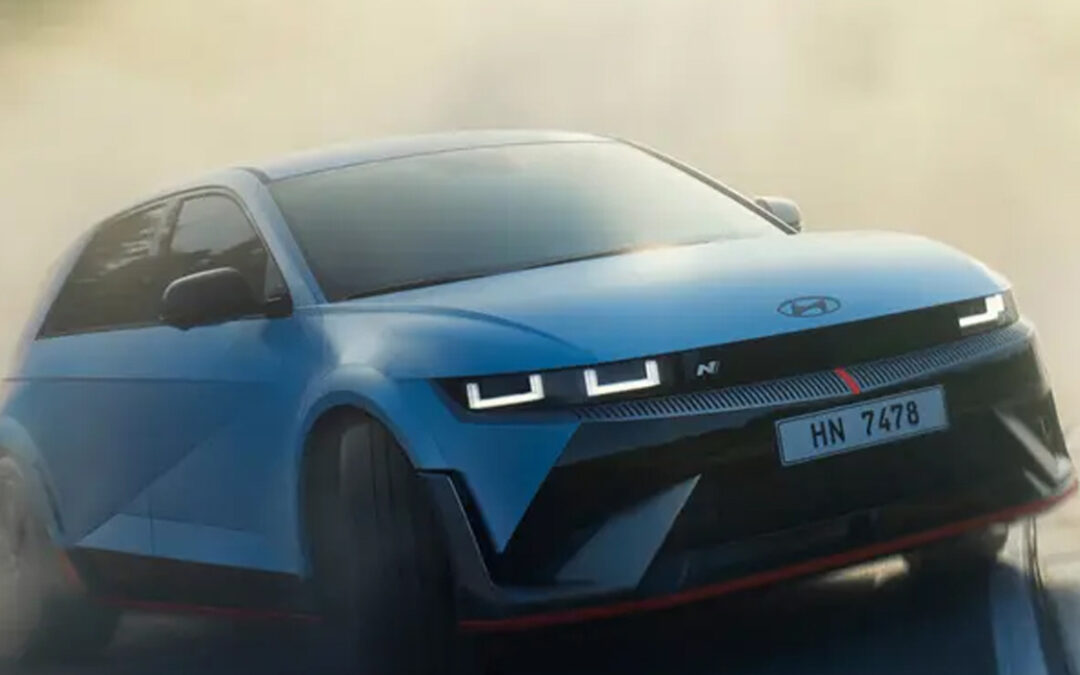The best electric SUVs money can buy in 2025
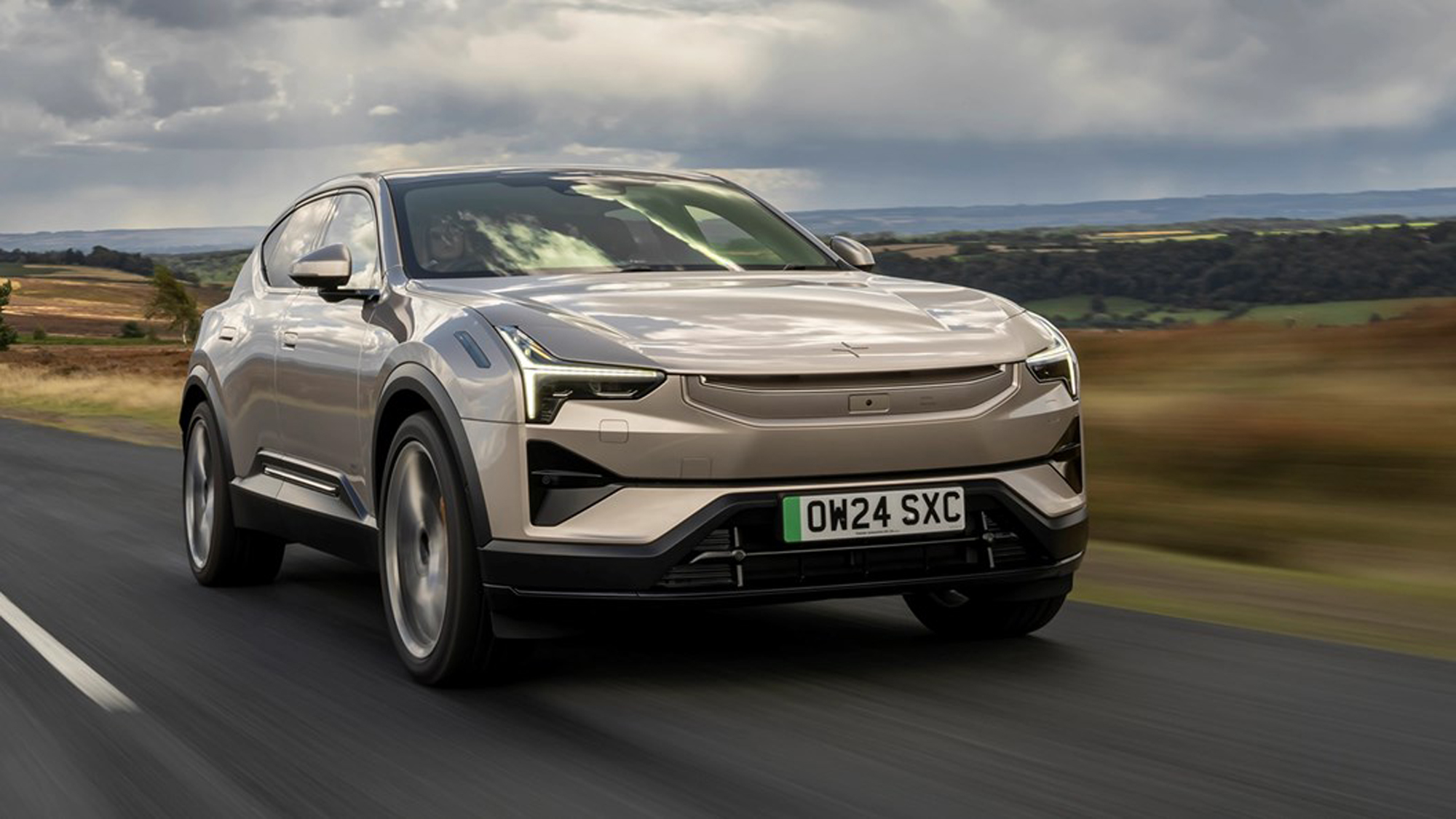
If you’re looking to buy an electric car, there’s a good chance your list will include at least one or two electric SUVs. Car manufacturers are making loads of them in 2025, and that’s because of an ever-increasing consumer demand.
Jump aboard one and you’ll soon see what the fuss is about: like an estate they give you a good amount of boot space and cabin space – but they also give you a high, commanding driving position and can feel inherently safer to some drivers, too. They’re popular for a reason.

Electric powertrains also dovetail nicely with SUV body shapes. Their larger footprint makes it easier for engineers to shoehorn in as many batteries as possible, and their height means their skateboard won’t impact the driving position or cabin as much as in other body styles. An EV powertrain also generally allows for a comparatively larger wheelbase and more cabin space.
Our round-up covers a broad spectrum of vehicles, ranging from affordable family runabouts to budget-busting, warp-speed-capable battle cruisers, not to mention some innovative high-performance models and clever alternative thinking. If you don’t need so much space it’s worth considering a smaller electric car, while those not quite fully ready to commit to the EV lifestyle might be better served by a hybrid SUVs.
Kia EV6
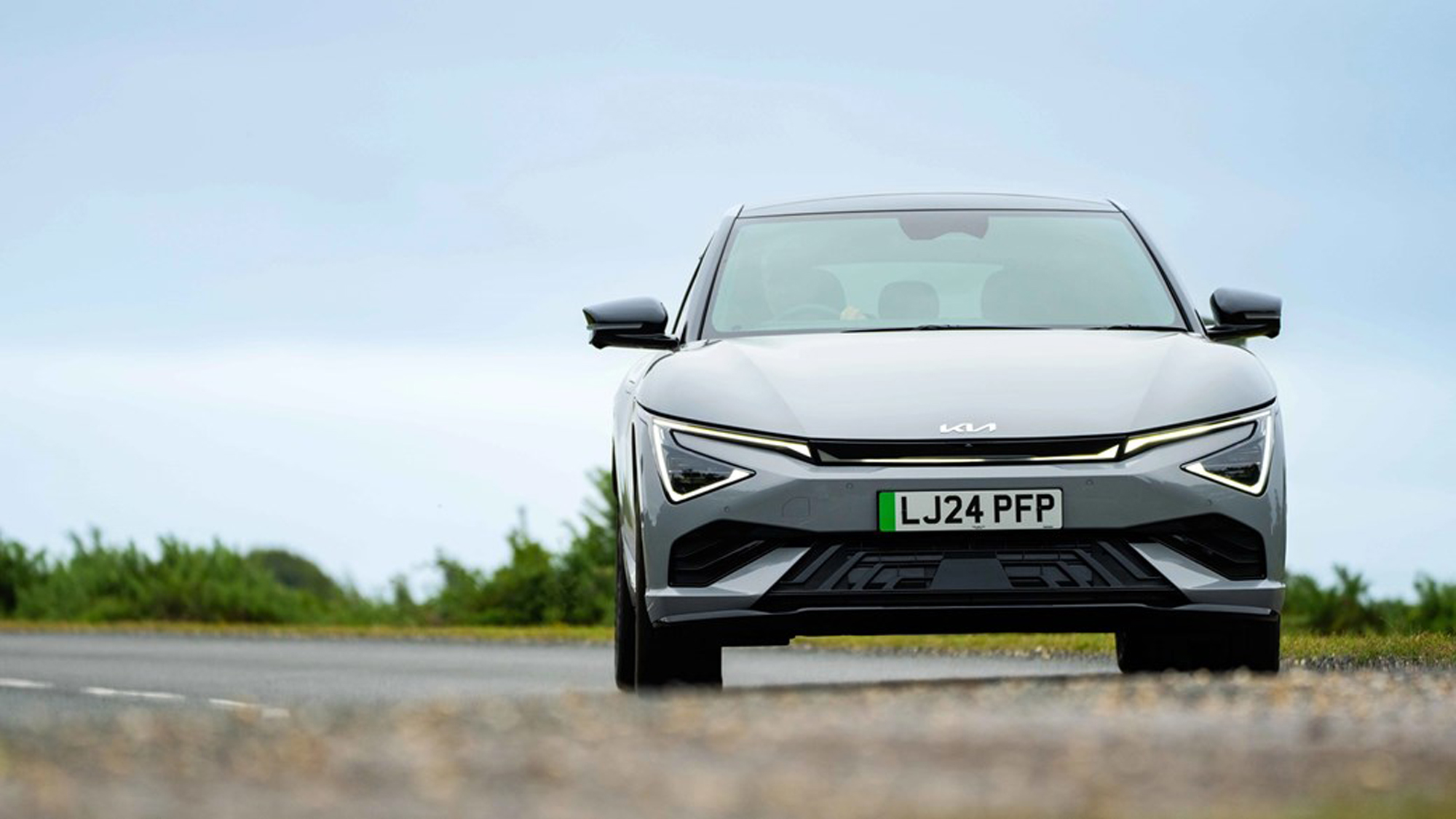
Best electric SUV to suit almost every requirement
Pros: Great performance, long range, super-fast charging
Cons: New safety tech is annoying, more physical buttons would have been good
The updated Kia EV6’s biggest change is a new battery pack. Capacity is up from 77.4kWh to 84.0kWh, which has jacked up its maximum WLTP range from 328 to 361 miles. That’s a 10% improvement. Kia has also cranked up the EV6’s maximum DC charging speed from 239kW to 258kW, so it now only takes 18 minutes to get from 10–80% capacity.
The new battery tech means it’s more usable than before, the styling tweaks have increased its kerb appeal and it’s still absolutely brilliant to drive.
Also consider: While the Kia gives the perfect blend of style and comfort, its looks may be a bit too space-age for some. If that sounds like you, take a look at the Genesis GV60. It runs on the same impressive e-GMP platform as the EV6, but opts for more conservative styling. In fact, Genesis frames itself as the Hyundai Motor Group’s luxury brand, though that does mean it commands a premium over the Kia.
BMW iX
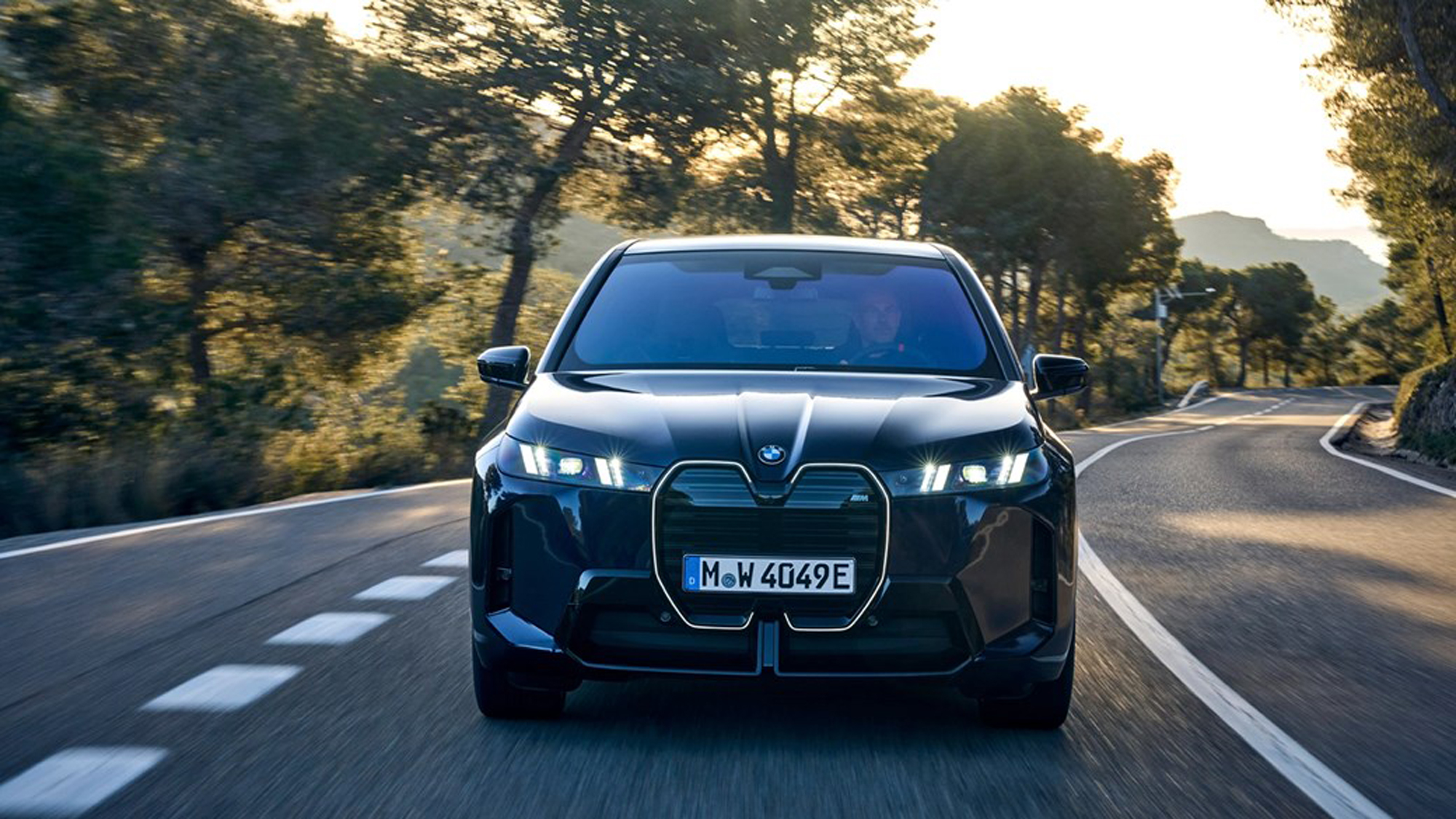
Best for luxury and power – not so great if you value looks
Pros: Excellent to drive, fantastic interior quality, useful powertrain upgrades
Cons: Divisive styling remains, cabin doesn’t feel as special as it once did, average boot space
Inspired by the Neue Klasse X concept, the iX gets some new headlights and redesigned bumpers. Three powertrains are on offer: but each gets a new name to reflect the additional battery size and power.
And about that: The xDrive40 becomes the xDrive45, with power increasing from 322bhp to 402bhp, dropping the 0-62mph time by a second to 5.1 seconds. But the biggest change here is the size of the battery, as while the 40 previously used a relatively small 71kWh battery, it now features a 30 per cent larger 94.8kWh unit that increases the claimed electric range from 257 miles to 374 miles.
The entry-level model above (already the best-seller) is all many would ever need in terms of range and performance, and you’d be daft to upgrade to the significantly more expensive versions. It keeps BMW ahead of its German rivals.
Porsche Macan
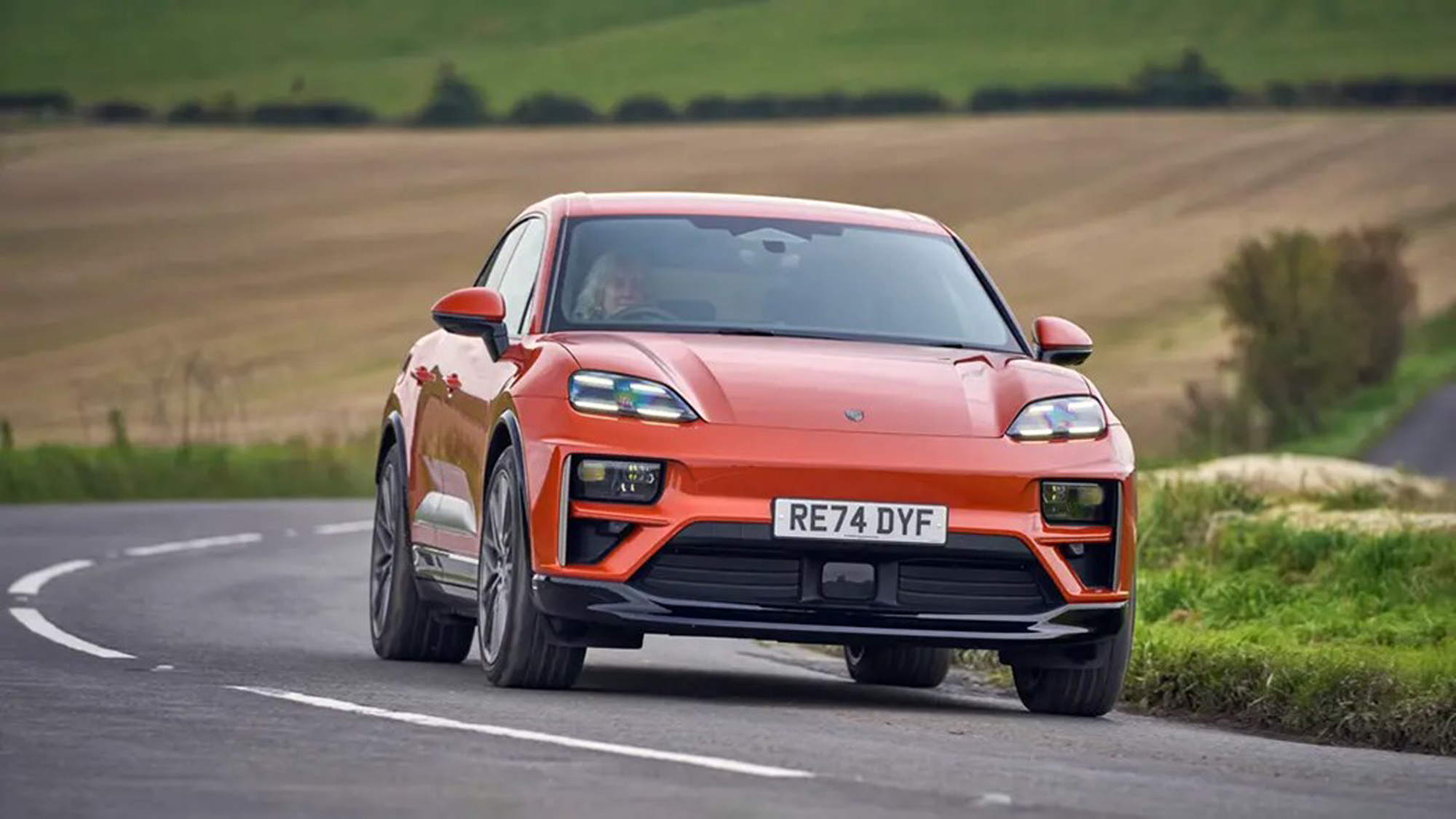
Best electric SUV if you’re a keen driver
Pros: Taycan electric tech in an SUV, superb to drive, near 400-mile range
Cons: Not that practical, Taycan hasn’t been super reliable
Porsche has doubled-down on its electric offerings by following-up the Taycan with an all-new, all-electric generation of Macan SUV. Almost certainly there are going to be some disgruntled previous-generation Macan owners who won’t be able to make an electric lifestyle work, but with up to 381-mile claimed range capability, 800v fast charging (10-80 per cent in 21 minutes – with the right charger) and stonking performance, there may be fewer of these than you’d first thought.
Especially since, for keen drivers who want an electric SUV but don’t want to look like they’ve reverted to being a teenager (see the Hyundai Ioniq 5 N, below), the new Porsche Macan is absolutely it. Fab steering, sweet-riding air suspension and a Turbo model with 630bhp makes this better to drive than anything else on this list – even the 402bhp Macan 4 would do for us, arguably proving an even better blend of all-round usability and emissions-free thrill-seeking. Being a Porsche, you’ll need to get sucked into the options list for the full effect, though…
Skoda Elroq
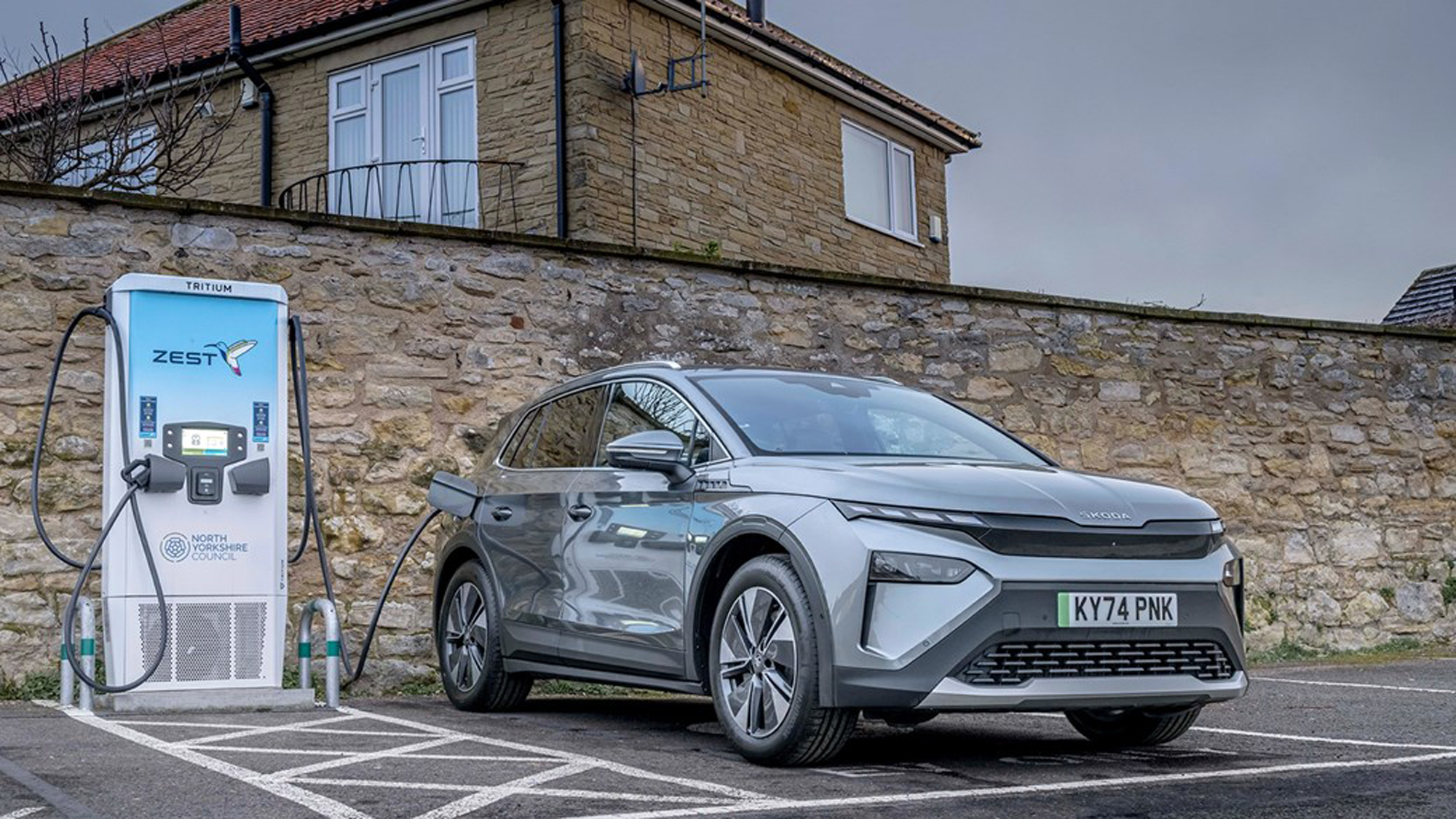
Best family SUV that just happens to be electric
Pros: Practical interior, great to drive, well-finished interior
Cons: Not the most interesting SUV, expensive options
Skoda has a history of building sensible cars, and the electric SUV market has been a better place since the firm decided to participate in it. There are two Skoda SUVs that could’ve made this list – the Elroq and the Enyaq – but we picked the former for its better value and more stylish looks.
Like the Enyaq, though, the Elroq adopts a more moderate approach, focusing on practicality rather than headline-grabbing performance figures – and it’s all the better for it. It’s a great family car with loads of passenger space and a huge boot.
The Elroq is also good to drive with an excellent ride and handling balance, and is available with a range of versions – starting from an attractive £31,500, roughly what you’d pay for an ICE Skoda Karoq. In range-topping form it also boasts an excellent claimed range of up to 360 miles.
Renault Scenic
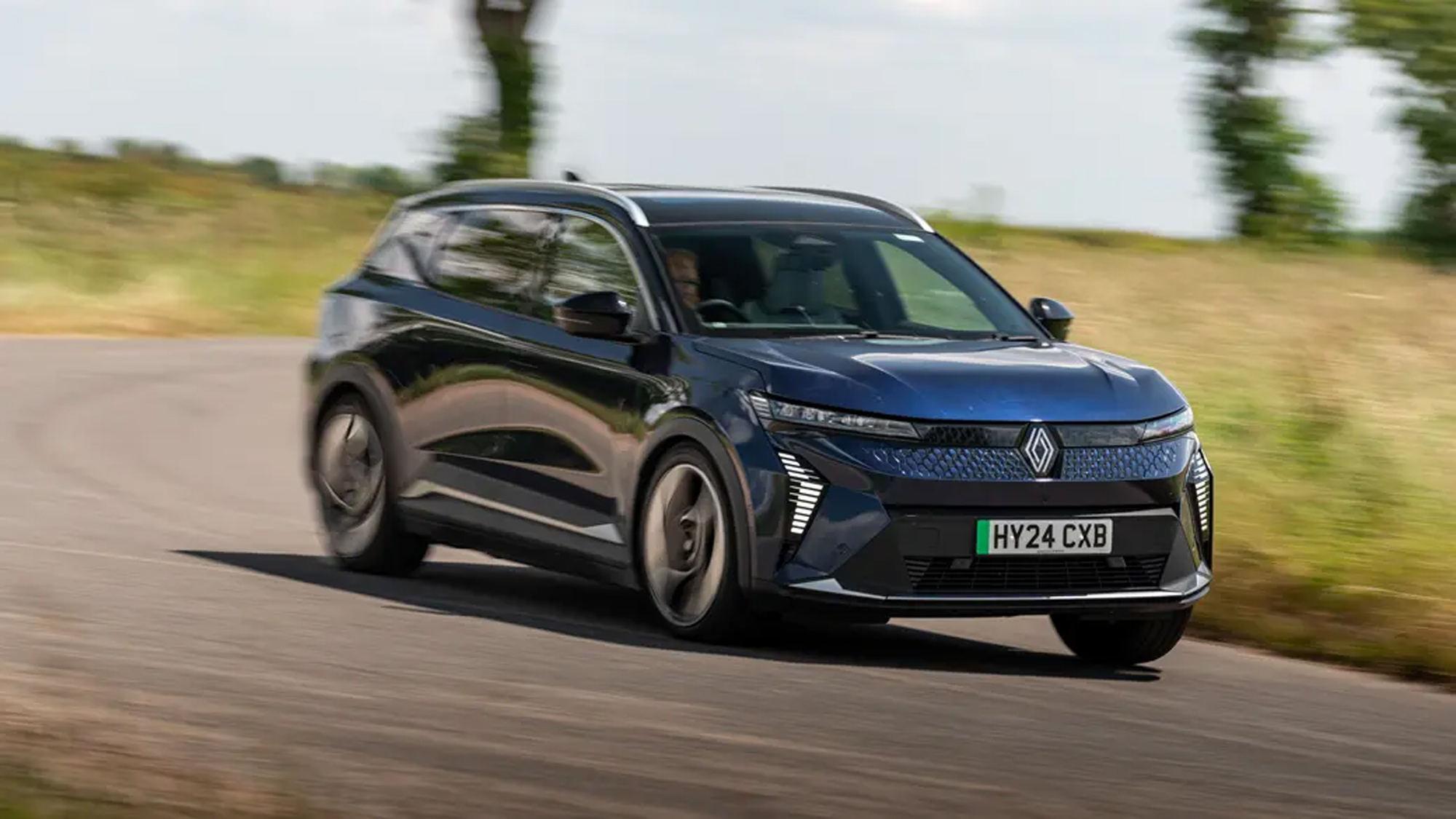
Best electric SUV for those after flair and good range
Pros: Engaging handling, efficient powertrain, good range
Cons: Ride can be jiggly at times, poor rear visibility
The new Renault Scenic can’t decide if it wants to be an MPV or an SUV, but it makes our list of the best electric SUVs in any case. It’s spacious and – true to the original Scenic philosophy – it keeps the safety and well-being of passengers front and centre.
It’s relatively light for a car in this sector, and that comes with two key benefits: first its official efficiency and range figures are impressive, and best of all, it has a little old-school Renault va-va-voom.
It’s no sports car and its performance isn’t electrifying for an electric car, but there’s enough spirit in its dynamic DNA to at least provide a semblance of fun for keen drivers – while also proving easy to drive around town.It also showcases Renault’s attention to sustainability – in its production and at the end of its life.
Peugeot e-5008
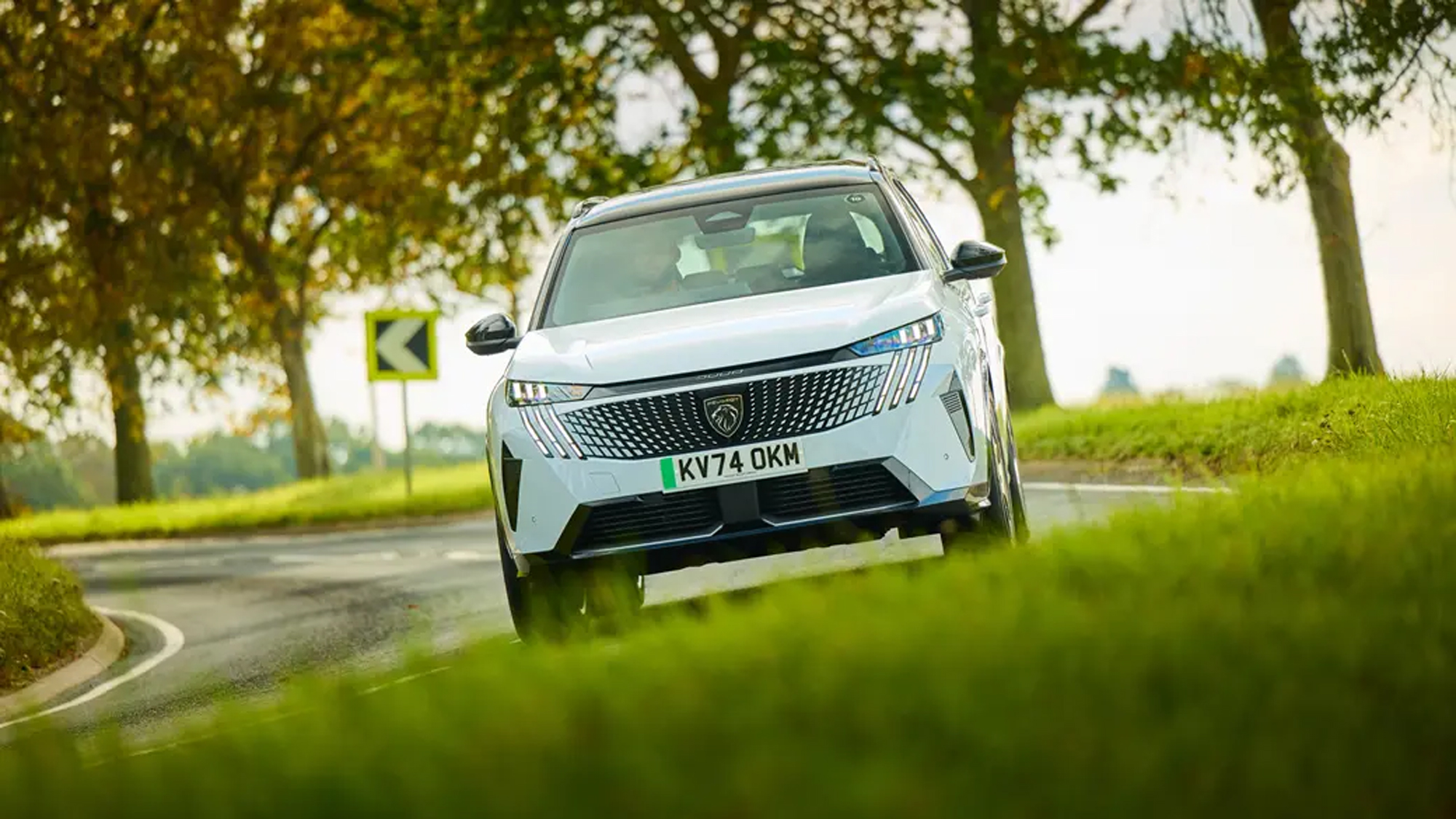
Best electric SUV for French comfort
Pros: Interior is unique, huge range, comfortable ride
Cons: Back row is cramped, tech could be more intuitive
Peugeot’s range-topping electric SUV is finally here, and we’re big fans. On paper it’s just another people mover – now with room for seven – but in reality, it’s a full of character and space in equal measure. It’s been built to a price, but it’s good-looking inside and out, and feels like a premium piece of kit.
Throw in competitive range, even in the basic model we drove, as well as impressive legroom and the e-5008 does the basics right too. It’s significantly cheaper than many other electric SUVs: The £65,025 Kia EV9 and the vastly more expensive Volvo EX90, which retails at £96,255 both eclipse this in price, as does the Mercedes EQB.
If an electric powertrain isn’t your main concern, we’d also recommend checking out the 5008. The base EV in Allure spec starts at £48,550. That’s around £11,000 more expensive than the mild hybrid, and exactly £5000 more than the entry-level plug-in.
Renault 4
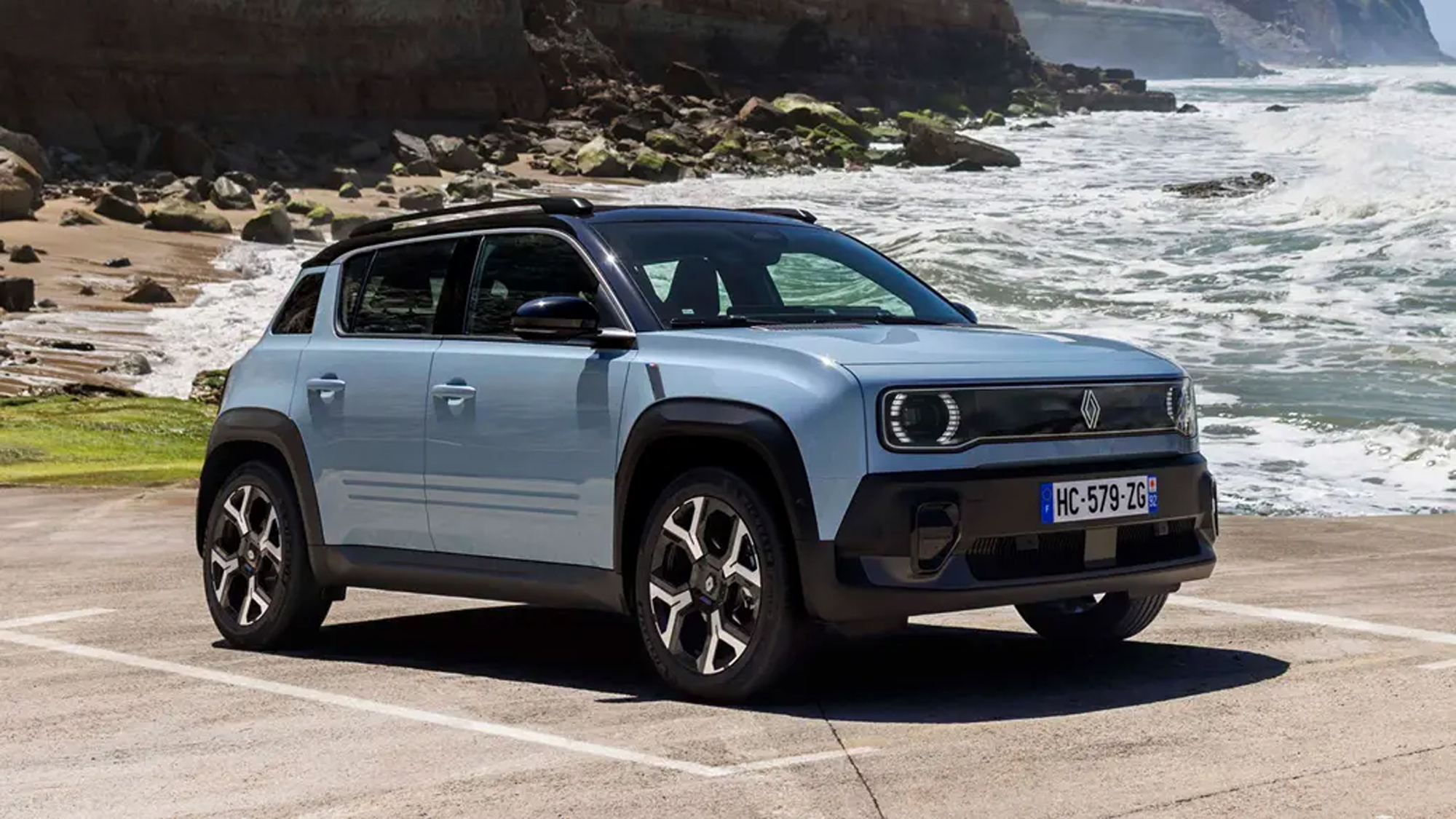
The Renault 5 gets a family-friendly option
Pros: Good to drive, very well priced, classy and easy to use interior, big boot, reasonable range
Cons: Ride a touch firm, heated seats only on top trim level, rear foot space could be better
The Renault 5 is understandably grabbing all the headlines and accolades, but the 4 is an arguably better car. Although not quite as achingly desirable to look at as its smaller sibling, the 4 is a bit longer, taller and family friendly. Renault don’t call it an SUV, but we do.
There’s more space inside than you’d think, and the 4 has 420-litres of space under the rear parcel shelf and 1405-litres with the rear seats folded. This includes a 55-litre box under the boot floor, while there are handy straps and cubbies to stop your boot contents lapping the cargo area as you drive.
Simply put, the 4 inherits all the good bits of the 5, adds significantly more practicality and doesn’t appear to jack the price up too much.
Hyundai Ioniq 9
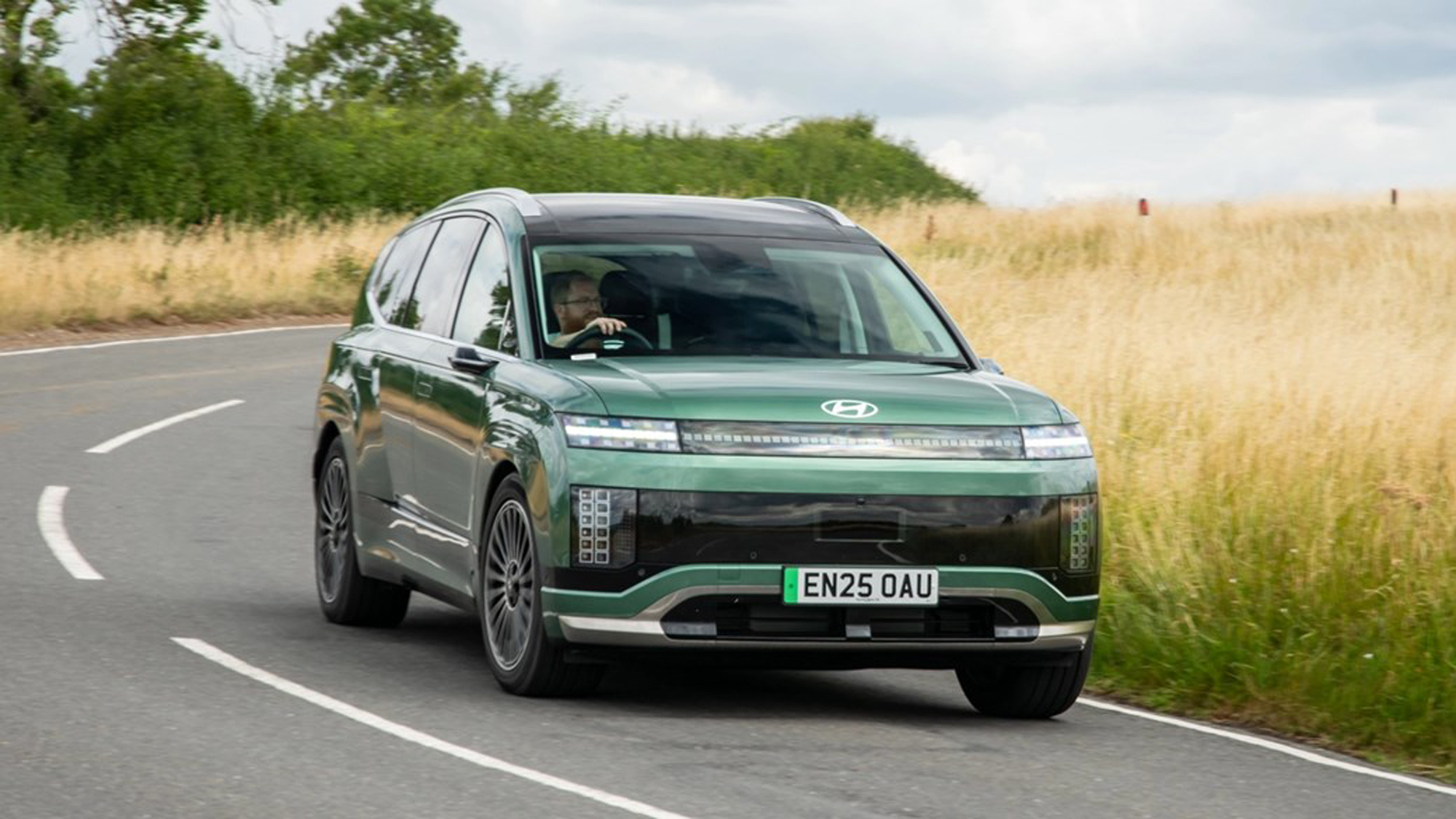
Best 7 seater electric SUV
Pros: Cool, calm and comfortable; distinctive; hugely flexible interior, good range
Cons: Infotainment screen is busy; lots of lean in the bends
Both Kia and Hyundai have put out some impressive electric SUVs this year, but the three-row, seven-seat Hyundai Ioniq 9 just edges its EV9 sibling for inclusion in this list. On the outside, it’s a 5060mm, 1980mm, 1970mm spaceship, but inside it packs in some impressive technology and a very solid interior.
Hyundai has confirmed three specifications for the Ioniq 9, which have quite self-explanatory names. Every version features a huge 110.3kWh battery pack and, due to Hyundai’s E-GMP platform underneath, allows for up to 350kW of DC charging.
The handling isn’t the best, but with this much space, technology and refinement we’re willing to look past its handling issues. And when all this comes for less than a Volvo EX90, or the upcoming electric Range Rover, the Ioniq 9 feels like great value.
MINI Countryman Electric
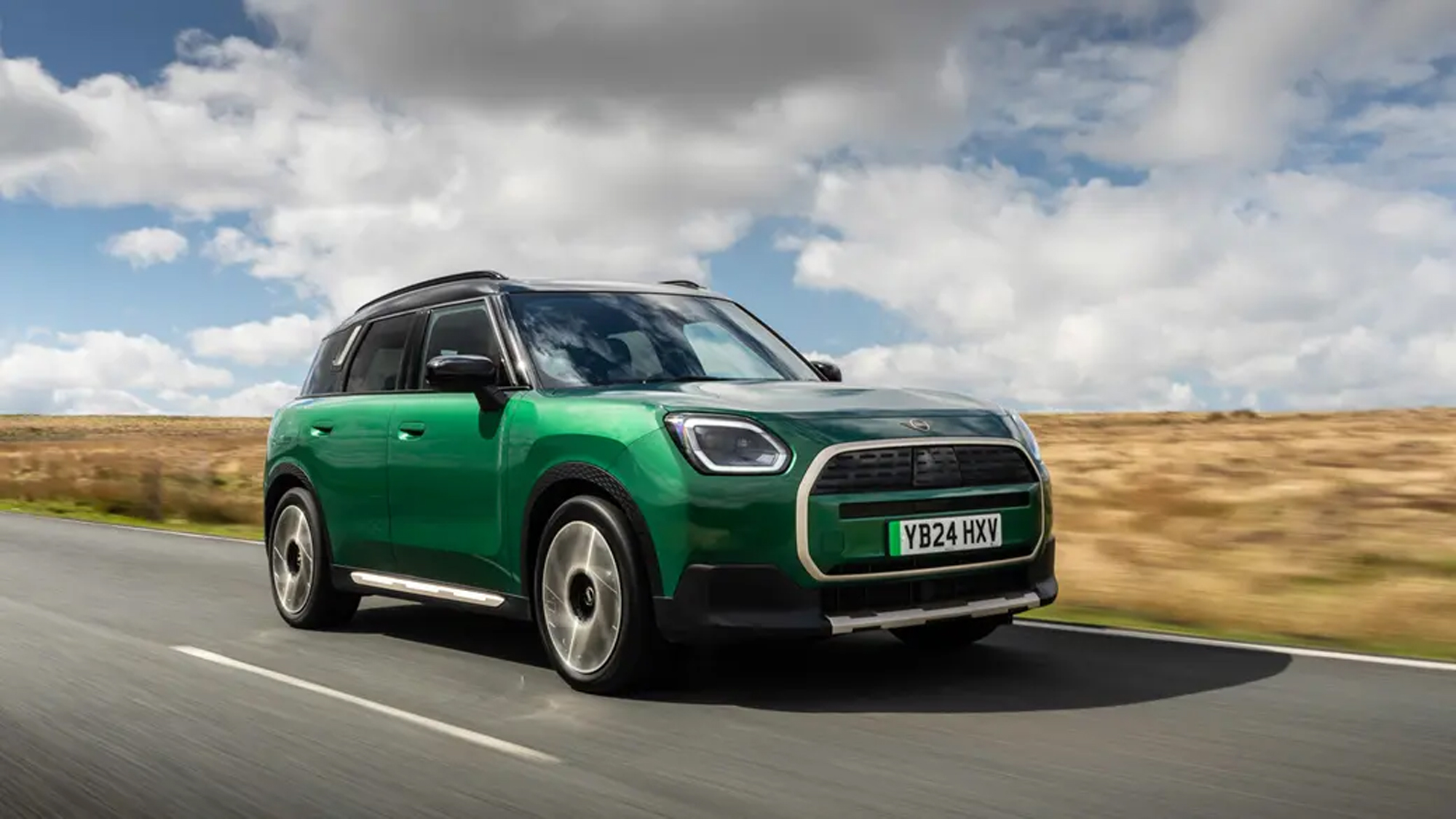
Best electric SUV for fifth-gen BMW eDrive tech at a lower price
Pros: Plenty of performance and driving range, tempting value given the standard kit
Cons: Poor touchscreen control decisions, bold interior combos
Once the purists have climbed down from their high horses, even they will probably agree that the latest – and largest – Mini Countryman is the best yet. The dynamics are sorted, the interior is quirky yet high quality, and there’s now enough interior space to properly challenge more traditionally family-sized crossovers, such as the perennial Nissan Qashqai. Ok, so some of the details are weird, and it’s not exactly a looker, but still. This is a super solid family car now.
The reason it’s on this list of the best electric SUVs, however, is because it offers the exact same electric drive technology as the BMW iX1 and BMW iX2, but for a usefully lower price. We’re not all about bargain hunting here, but BMW’s fifth-gen eDrive tech is among the best in the market, and by making it more affordable, this German-made Mini should end up bringing it to more people. Jolly good show.
Hyundai Ioniq 5 N
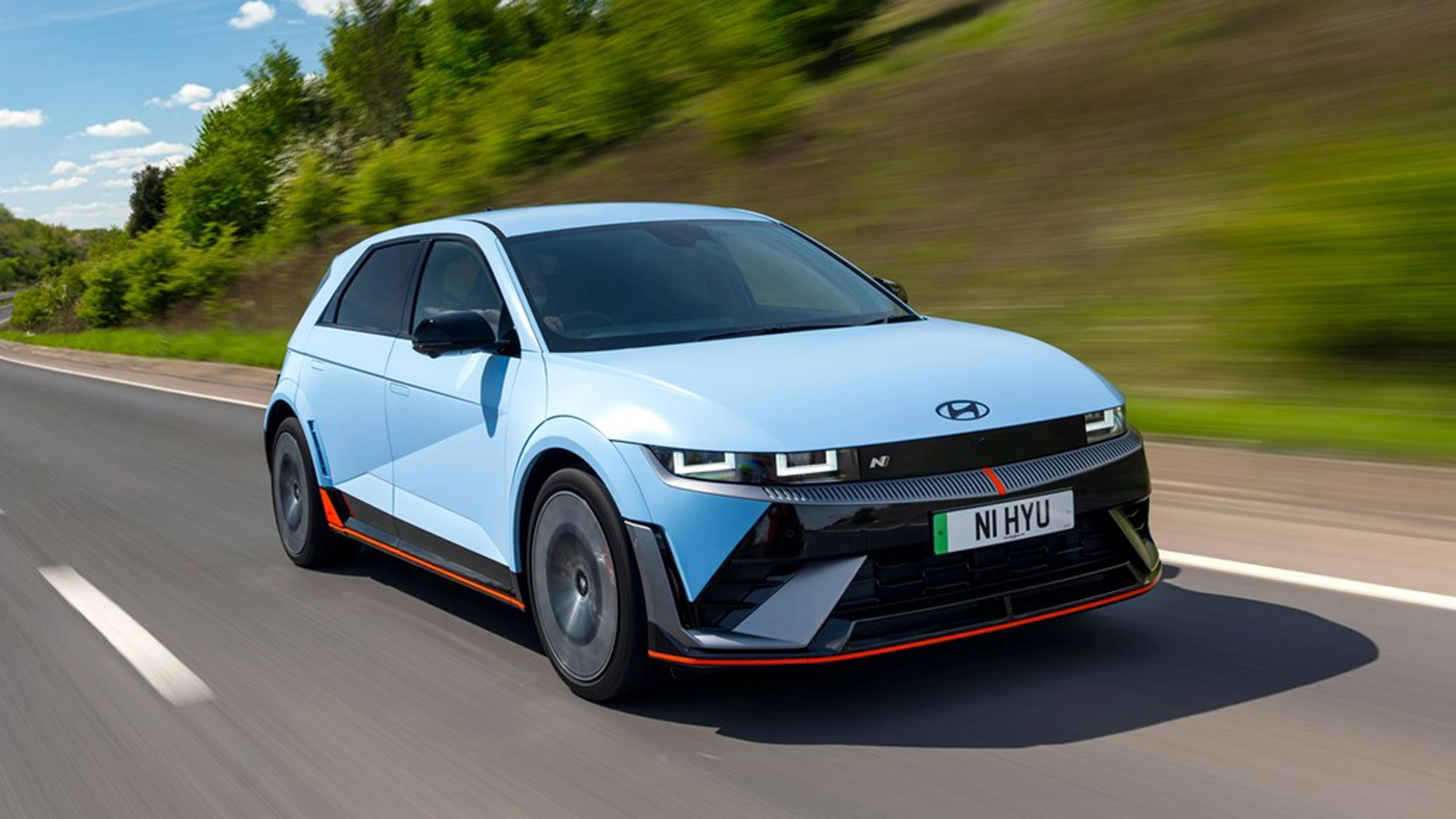
Best electric SUV if you really want to be driving a hot hatch
Pros: An amazing blend of technology and driving excitement, nothing else is quite like it
Cons: Still weights 2.2 tonnes, not much else
There is ever some debate in the CAR office about whether the Hyundai Ioniq 5 – and the Kia EV6 for that matter – counts as an SUV. In many respects, this is more of a gargantuan hatchback, sort of like a first-gen Golf Plus for millennials. Or something. What’s not in any doubt, however, is that the Ioniq 5 N we’re recommending here is the first high-performance EV that properly captures the spirit of the classic hot hatch.
Who cares if we’re getting the streams crossed here if this is another chance to point out what a diamond this innovative machine really is. As if the twin-motor 641bhp drivetrain didn’t have the potential to be exciting enough on its own, there are substantial upgrades to the body-in-white and a host of chassis and drivetrain tricks that are really only possible in an EV – not to mention a simulated DCT gearbox that actually doesn’t suck. It’s mind blowing.
How we tested
As with every review on CAR, each of the models has been driven extensively by our exceptionally experienced team of leading motoring journalists and specialist writers. Take a look at how we test cars to find out more.

